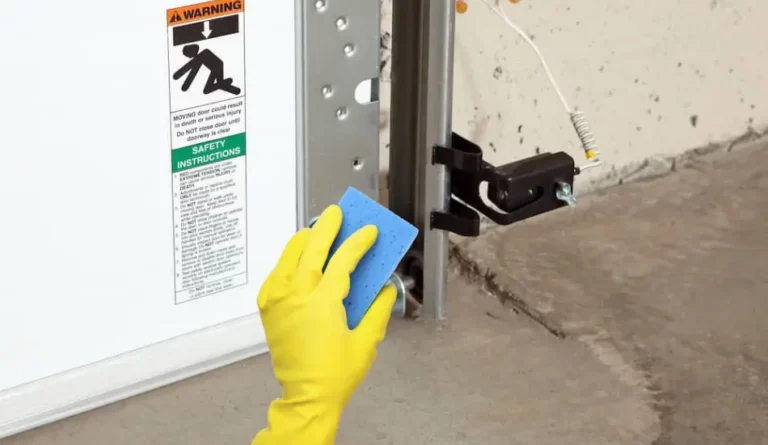Is It Okay To Pee in Pool? Expert Explain
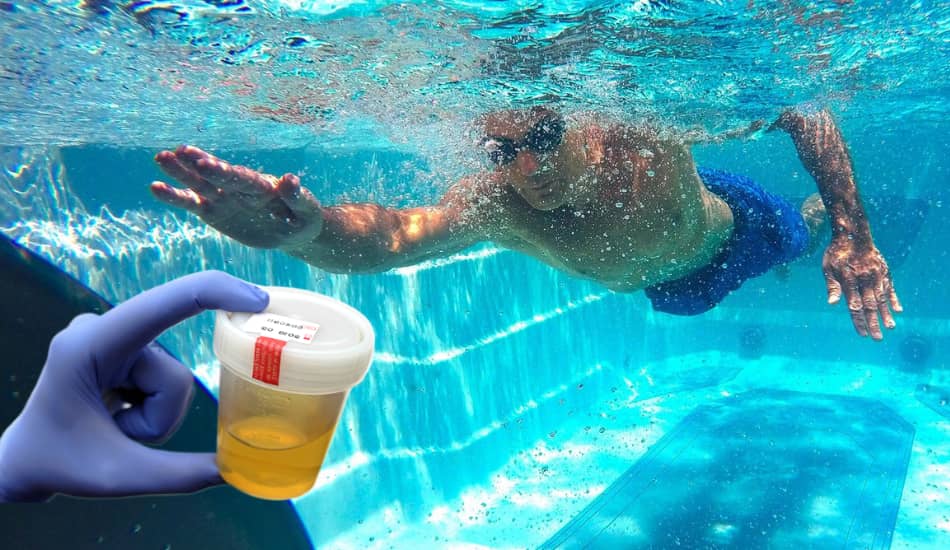
The question of whether it’s appropriate to urinate in a swimming pool is a frequent consideration for individuals of all ages, particularly in the summertime at public pools. That’s because many people are curious about the possible dangers and implications of being in water that may be tainted with the urine of others.
First of all, this is not something that is nice to see. Therefore, the question arises is it really safe? And does it make a difference if you decide to pee in the pool yourself, or is it wiser to go to the nearest bathroom? In this article, we’ll talk about that. So, let’s start!
Is It Okay To Pee in Pool? No, it is not okay to pee in the pool. Urinating in the pool can disrupt the water’s chemical balance, potentially leading to health and safety issues for swimmers. Maintaining proper hygiene in public swimming areas is important to ensure a safe and enjoyable environment for everyone.
Pissing in the pool should be avoided, both in private pools and in public ones. The research that was conducted on more than 1,000 samples showed that urine, combined with chemicals and sweat, interacts chemically with chlorine. We will cover this topic in more detail below, but let’s see what happens in the pool when you pee.
Table of Contents
What Happens When You Pee in the Pool?
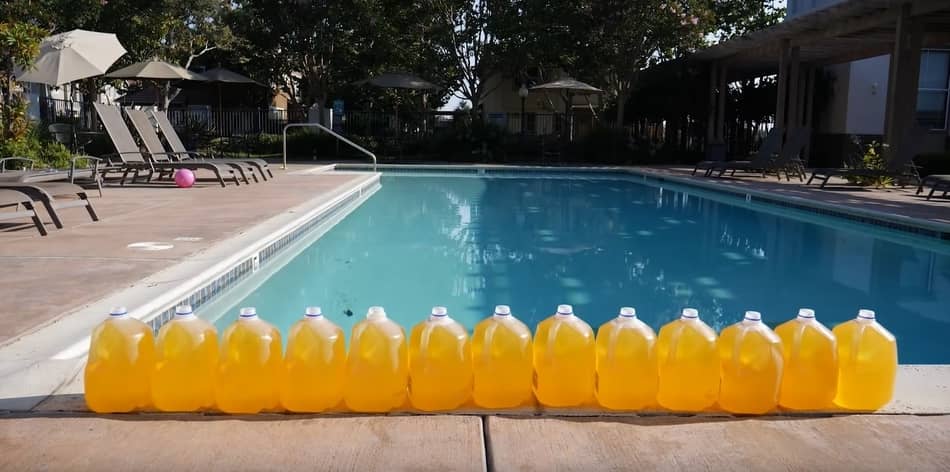
Although urine is initially sterile, it has components such as urea, creatinine, amino acids, and ammonia, all of which can disrupt the chemical stability of a pool that hasn’t been treated. On their own, these components in urine are not dangerous, and urine itself is acidic.
However, when these components interact with the pool’s chemicals, they can lead to symptoms like eye irritation or even respiratory issues akin to occupational asthma. The ammonia present in urine has the potential to combine with chlorine, resulting in the production of chloramine gases in small amounts, leading to possible nausea and coughing episodes.
The number of people urinating in pools is pretty high, with 20% of American adults acknowledging that they have done it at least once. However, it’s important to highlight that no studies were made on children, and it’s uncertain how many would openly admit that they peed in the pool until now.
Related Article: How Much Pee Is In Your Swimming Pool?
Are There Risks To Peeing In The Pool?
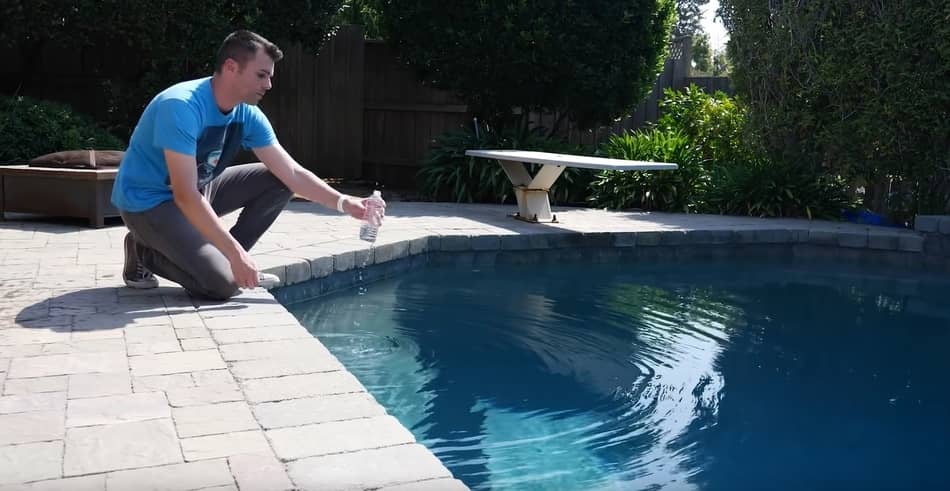
When it comes to swimming, the thought of whether or not it’s okay to pee in the pool has probably crossed your mind. However, are there any risks when it comes to peeing in the pool? Usually, swimming in a pool with urine doesn’t pose a health risk.
Let’s see how urine reacts in pool water. Usually, urine consists of 95% water; the remaining 5% is a mixture of various byproducts from your food and beverages. These include:
- Urea: This is a substance your liver produces to help rid your body of excess ammonia and nitrogen.
- Uric acid: This component is formed when your body breaks down certain foods and drinks.
- Electrolytes, encompassing but not limited to sodium, potassium, chloride, and phosphorus.
- Minuscule particles: These are dead cells from your blood, as well as potential traces of chemicals from tobacco, drugs, vitamins, or other substances that your kidneys filter from your bloodstream
In most cases, the substances listed above are not present in urine to pose any threat. Therefore, if you find yourself urinating in the pool or swimming in water that contains someone else’s urine, it doesn’t inherently pose a health risk.
What Happens If You Pee in a Saltwater Pool?
The outcomes are the same as when peeing in a normal chlorine pool. While saltwater pools possess less chlorine, it is still present. Consequently, if an individual opts to urinate in a saltwater pool, similar chemical interactions take place. Just as with pools treated primarily with chlorine, it’s crucial to look for signs such as swollen eyes, various skin rashes, and different skin discomforts.
Does Chlorine Kill Pee in Pools?
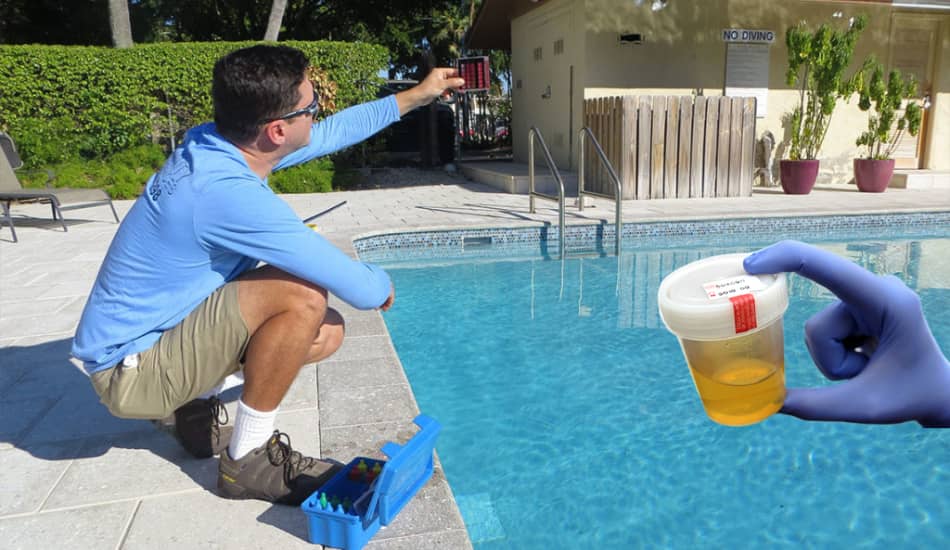
Even though urine is essentially sterile, chlorine doesn’t actually “kill” it. The primary role of chlorine in a pool is to neutralize bacteria and break down various impurities. However, chlorine is not an infinitive resource; it expands as it performs its cleaning functions.
When an individual pees in the pool, chlorine starts to tackle it as it would with any other impurity, attempting to neutralize the urine. Nonetheless, this doesn’t imply the chlorine is performing effectively. Often, a strong scent of chlorine in a pool is actually a sign of chlorine reacting with urine rather than effectively cleaning the pool.
How to Remove Urine From a Pool?
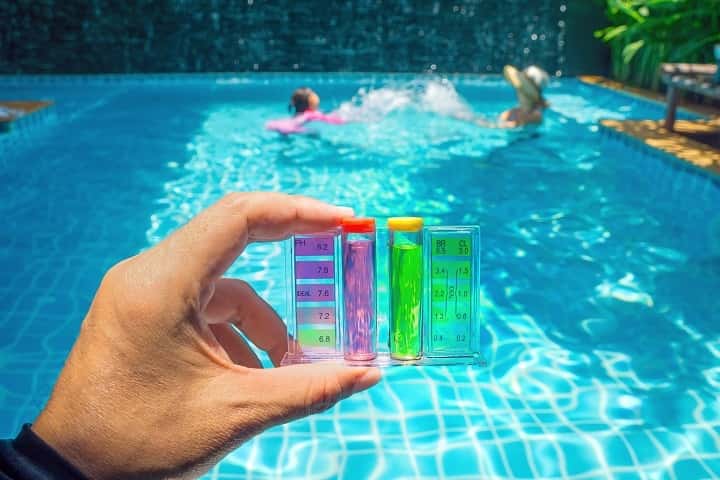
The water in your swimming pool can’t purify itself naturally. Therefore, once urine gets into the water, the only way to remove it is by emptying, cleaning, and refilling the pool. Replacing the water every 5 years or so is generally advised, particularly for pools built into the ground. However, if urine is present in the pool, it might be necessary to speed up this process.
In households with small children, where urine in the pool could become a frequent issue, it’s not practical to empty the pool each time this happens. In such cases, what alternatives are available? One solution is introducing enzymes that can break down urea and other urine compounds. Alternatively, adding ozone or UV treatments can serve to purify the pool continually.
Related Article: Is It OK To Pee In a Shower? Expert Explain
Why Shouldn’t You Pee in the Pool?
First and foremost, it’s not hygienic. Beyond the factor of cleanliness, urinating in a pool depletes the essential chlorine that’s meant to eliminate contaminants such as bacteria, feces, dirt, sweat, and various other debris, explains Kathryn Boling, M.D., a family medicine specialist from Mercy Medical Center in Baltimore. “When urine interacts with chlorine, it reduces the chlorine’s ability to perform its primary function, which is neutralizing viruses and bacteria,” she says.
Chlorine operates optimally in a specific pH range, and this balance is important for its effectiveness, as pointed out by a professional named Alan. Unfortunately, “ presence of urine in pool water disrupts this balance,” he notes. Furthermore, when chlorine and urine mix, they create byproducts termed chloramines. “This reaction consumes available chlorine, reducing its efficiency,” he adds.
Here is one interesting YouTube video that explains how you can measure pee in your pool:
FAQ: People Also Ask
Does chlorine clean pee in pool?
Chlorine is not effective in cleaning urine from pool water. It can eliminate bacteria, but it cannot remove or “kill” urine since urine is essentially sterile. Once urine enters the pool, it stays there, as chlorine does not have the capability to remove it.
Does chlorine burn because of pee?
Many believe that chlorine is the culprit behind swimmers’ red eyes, particularly in busy public pools. In reality, the irritation stems from what the chlorine is trying to eliminate in the water, namely human urine. It’s actually the interaction with substances like urine that causes the redness, not the chlorine on its own.
Final Thoughts
In conclusion, urinating in the pool is a practice that should be avoided due to its negative impact on both the pool’s cleanliness and the effectiveness of its maintenance chemicals. When urine interacts with chlorine, it reduces the chlorine’s ability to adequately disinfect the water, potentially leading to an unsafe swimming environment.
Additionally, the alteration of the water’s pH balance can result in the formation of chloramines, further diminishing the effectiveness of the chlorine. It is essential for swimmers to maintain proper hygiene and use the bathrooms when needed to ensure a clean and safe swimming experience for everyone. I hope this article has helped you, and if you have any other questions, feel free to comment below.





